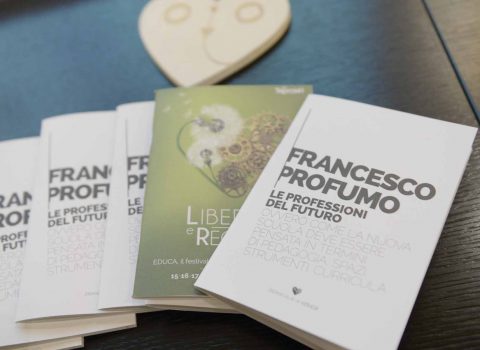Exclusive interview with Piero Angela: “Our future? It’s like a chess game”
Technology is revolutionizing our society profoundly, with discoveries that would once have been considered science fiction. According to Piero Angela, the ongoing revolution also entails many risks, especially for young people
The journalist and science popularizer Piero Angela was the protagonist of the sixth “Bruno Kessler Lecture”, dedicated to the role played by technology in changing our society. We met with him to discuss some aspects of the technological revolution we are experiencing, including science fiction (which today can already become reality) and trying to imagine the possible future scenarios of humanity.
Piero Angela, how has technology changed and will change our society?
“We are living in an era of great technological revolution: if we look back and at the same time we look forward, we realize that we are right at the center of this enormous transformation. At the time of the unification of Italy, 70% of Italians were illiterate: our fellow countrymen of the time were mostly peasants, poor and living little, with a life expectancy of 40 years. Suddenly, however, the wheels arrived in the fields and in the workshops and everything changed: a sort of “multiplication of the loaves and the fish”. Today we are experiencing a second revolution, that of computers and artificial intelligence. Computers are always faster and can accumulate and process a lot of memories: this means that these machines are now ubiquitous, revolutionizing the professions. ”
What are the risks of such a rapid revolution?
“We know that there are many concerns about the competition that will be created between machines and employment. It is up to politics to manage this fast transition, focusing above all on education, because we need to better prepare the new generations for this ongoing revolution. And you have to do it right away: when you talk about 2050 or 2100 you think of something far away, but acttually the young people who go to school today will be 50 years old in 2050 and when they are my age, in 2090, they will still be very efficient. The future is theirs, and not of someone else who is not there yet. ”
In your book “My long journey” you tell of having met Isaac Asimov, one of the fathers of science fiction. How much of that science fiction today could already be reality, thanks to the achievements of modern technology?
“Today we talk a lot about colonizing Mars, which is in reality extremely hard and takes a very long time. I remember that Asimov himself claimed that the future of mankind could be guaranteed not so much by the colonization of other planets, but by the creation of artificial colonies: the large rotating tubes 25 kilometers long and three thousand meters high, able to accommodate twenty thousand people, host fields, cows and even clouds inside them. At the center of these colonies, which would start from the Earth to venture into the Universe, one could also fly, being at zero gravity. Perhaps we will never do all this, but Asimov imagined this scenario projected on a very distant future, well beyond our era: in reality from a technological point of view is something that today would already be feasible. »
How do we imagine humanity in a hundred years?
“I don’t know, but we can compare our future to a chess game: how will the situation be in ten, twenty, fifty, or a hundred moves? It depends on the skill of the player. But we aren’t doing well at playing: we are doing like those beginners who captures a piece right away because they have an immediate advantage and lose sight of the game strategy. In short, we are not putting our pieces in the right position. By playing well we cannot know what the position of our pieces will be in a hundred years. But if we continue to make the wrong moves, like we are doing today, we’ll lose the game. “

